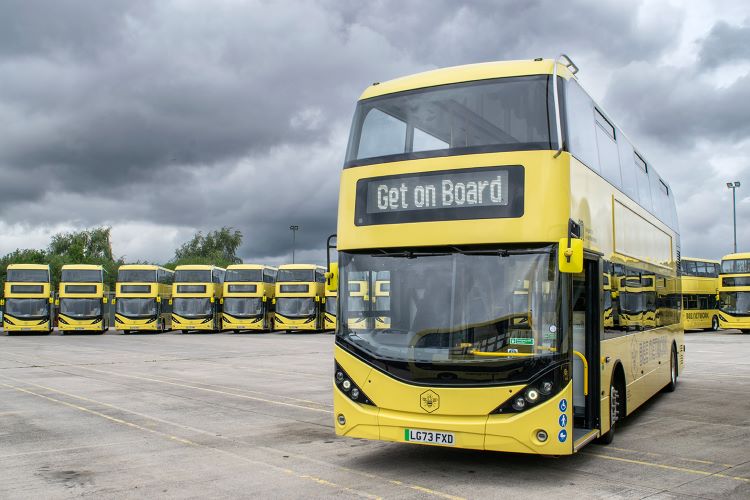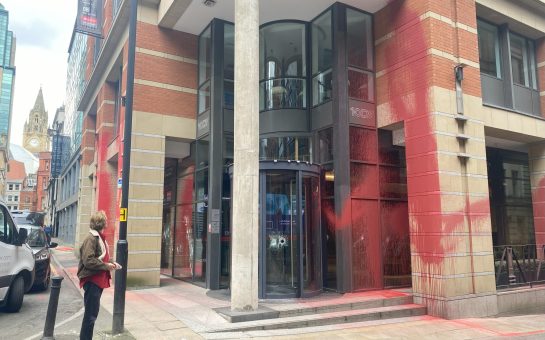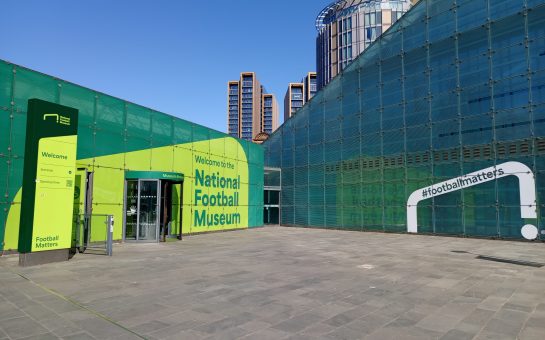The number of complaints made to Transport for Greater Manchester (TfGM) relating to disability access has stayed almost level for the past three years.
A Freedom of Information request revealed there were 50 such complaints in 2021, 45 in 2022 and 49 in 2023.
The figures have risen since the pandemic, with 17 complaints in 2019 and 14 in 2020.
Rick Burgess, outreach and development lead for the Greater Manchester Disabled People’s Panel (GMDPP), said: “I’m not surprised but I think it’s slightly deceptive.
“People are accustomed to transport being rubbish, so they don’t bother complaining, and the risk is you’re not seeing the under-the-radar picture.
“I know it’s a burden, but complaining helps.”
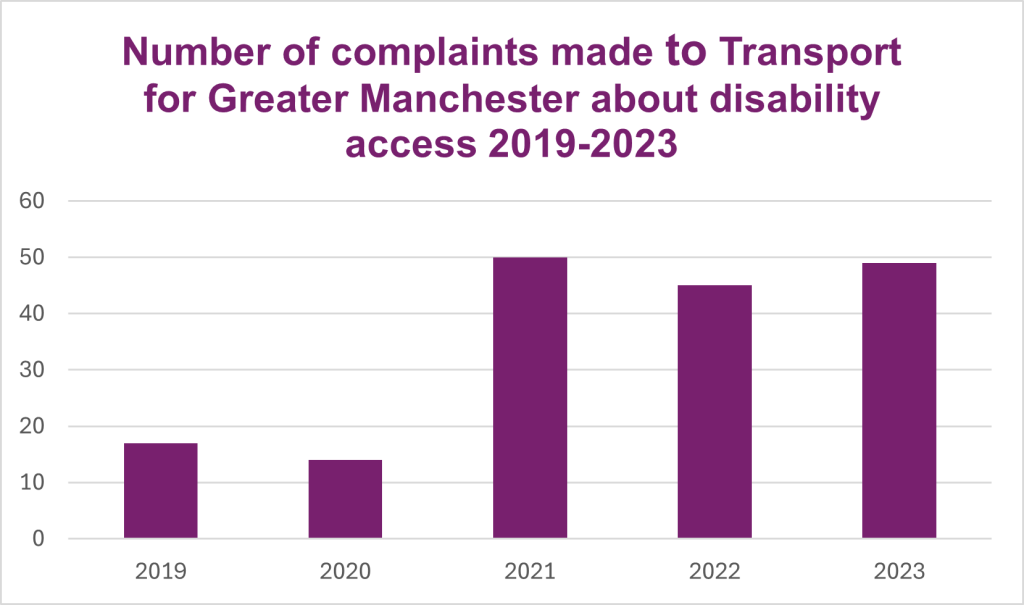
The GMDPP is an initiative between disabled people’s organisations and mayor Andy Burnham, to ensure disabled people are involved in all aspects of running the city region and planning for its future.
According to the 2021 Census, 19.78% of people in Greater Manchester have a disability.
The complaints data comes amid the continued rollout of the Bee Network, which launched in September 2023 and is on track to control all Greater Manchester buses by January 2025.
The new electric buses include two wheelchair spaces, hearing induction loops, audio and visual announcement systems and anti-slip flooring, while all Metrolink trams already have step-free access and audio-visual announcements.
Burgess said accessibility has improved on the Bee Network but argued the problem is far bigger.
He pointed to the difficulties of navigating the complaints systems of multiple operators, including Network Rail and Northern as well as TfGM, who may all be implicated in a single journey across buses, trams and trains.
Burgess added: “The reality is we all take a deep breath and prepare for whatever today’s unusual challenges are, and plan our lives around barriers.”
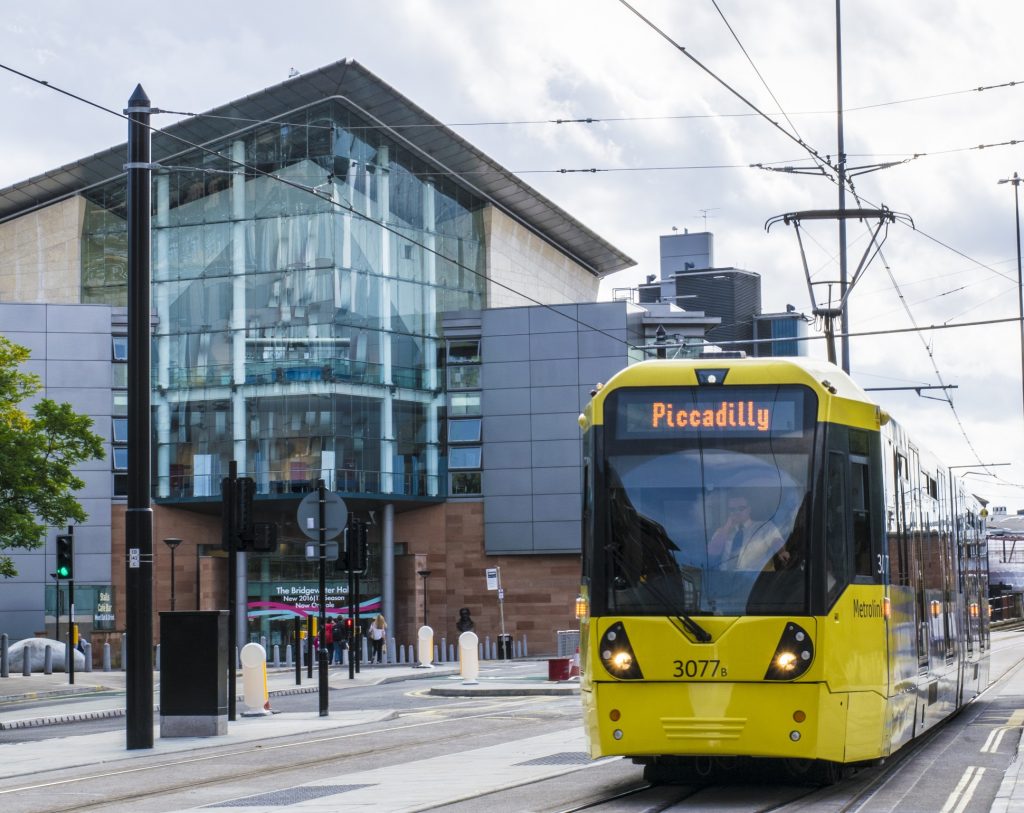
Fran Wilkinson, customer and growth director at TfGM, said the body is proud the Metrolink is fully accessible.
She cited current work to improve accessibility across bus and train networks as well as walking, wheeling and cycling routes, and TfGM’s work with the Disability Design Reference Group through which disabled people provide advice based on their lived experiences.
Wilkinson added: “We know more needs to be done.
“We treat every complaint about accessibility as an opportunity to learn about what we can be doing better.”
The Bee Network will also have a single point of contact for bus, tram and rail by 2028, making it easier for people to get in touch.
Since 2019, TfGM has secured funding to improve accessibility at seven train stations through the Department for Transport’s Access for All funding scheme, due to be delivered between 2025-26.
Access for All and the Greater Manchester Combined Authority also funded improvements to Irlam and Daisy Hill stations, including new passenger lifts.
However, TfGM said 41 out of Greater Manchester’s 96 train stations do not have step-free access.
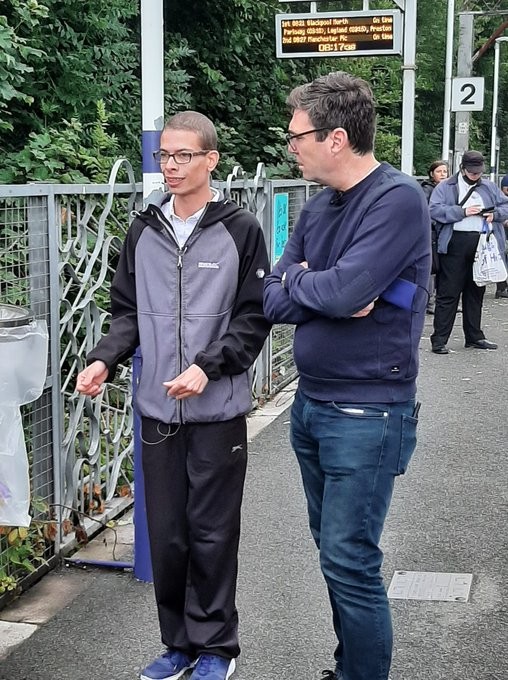
Accessibility campaigner Nathaniel Yates, 31, knows the consequences of this first-hand.
Yates, who has cerebral palsy, fell on the steps of Reddish North station in 2013 and began campaigning five years later when he found nothing had changed.
He secured funding to make Reddish North fully accessible in 2021 after attracting support from Andy Burnham and local MP Andrew Gwynne.
Yates said: “If people aren’t using the trains [due to inaccessibility], they won’t complain about them.
“People are going to be put off if they’ve had bad experiences.”
He welcomes efforts to improve step-free access but said he has been told making all stations in Greater Manchester accessible could take until 2070.
Yates added: “I don’t want to be an old man once it’s done.”
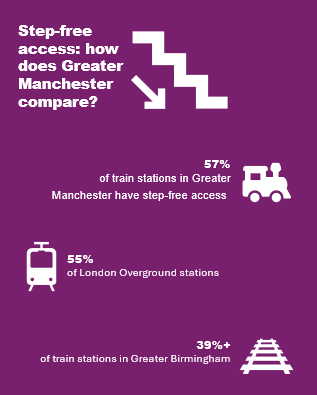
This is a national issue, with just 55% of London Overground stations having step-free access according to Transport for London.
Transport for West Midlands (TfWM) ranks degrees of step-free access from A to C, with A meaning step-free access to all platforms and C meaning none at all.
According to TfWM, just 39% of the 69 stations in the Greater Birmingham area fall into category A.
Forty-nine per cent fall into category B, which can mean full step-free access using long or steep ramps, some step-free access to all platforms or step-free access in one direction only.
The remaining eight stations have no step-free access.
Emma Vogelmann, head of policy, public affairs and campaigns at disability charity Transport for All, said disabled people nationally make 38% fewer journeys due to barriers to travel.
She added: “It’s exhausting and time-consuming to complain every time there’s a problem – from broken lifts, to closed ticket offices, and unreadable timetables – it’s unacceptable.”
The charity is asking decision-makers to take six steps to make transport better for disabled people and said it would be happy to work with TfGM.
Featured image credit: Transport for Greater Manchester
